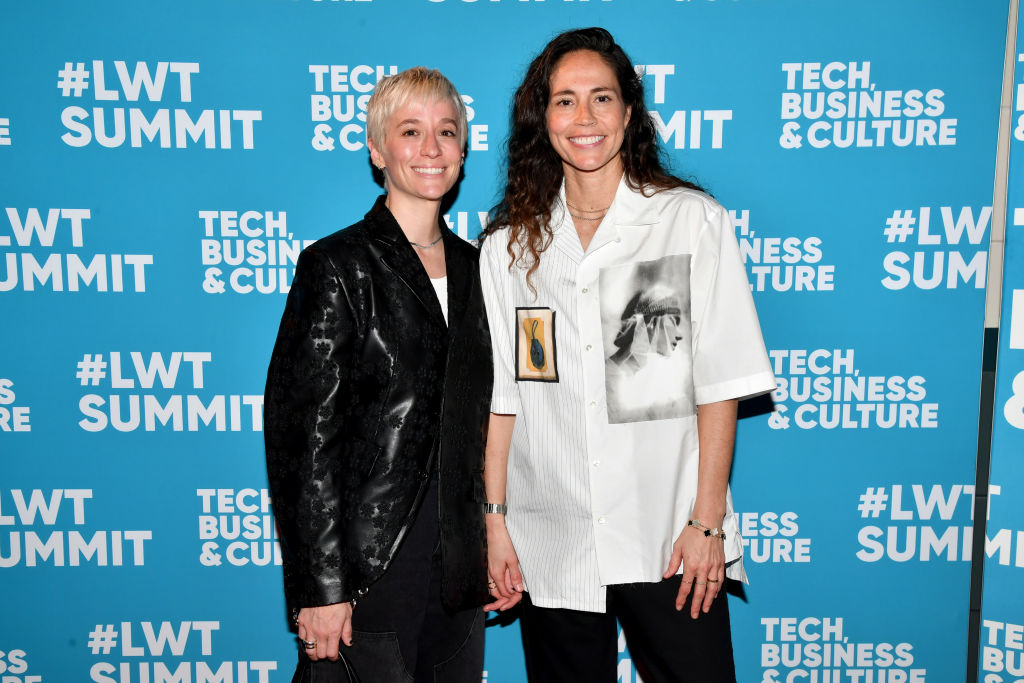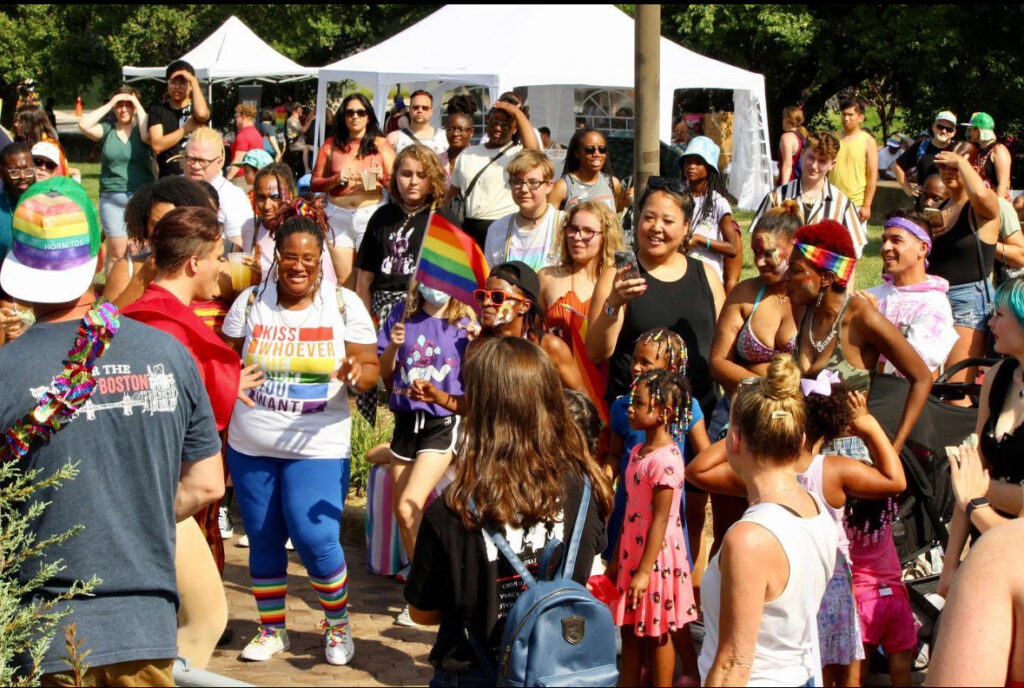The ‘Gentleman Jack’ Effect

Knowing that someone as intelligent and confident as Anne Lister lived her truth 180 years ago has inspired a lot of people of all kinds to feel more confident living their own truth today.
Anne Lister (1791-1840) was a lesbian hero who lived and died before there was a word for lesbians. A British aristocrat, she wrote a 5,000,000-word diary about her many love affairs with women — including the one she secretly married in 1832. In 2019, BBC/HBO gave us the show “Gentleman Jack,” centered on Anne’s courting of her rich neighbor Ann Walker, who is mesmerized by Lister’s swagger-y butch energy and intense intellect.
The showrunner, BAFTA-winning writer Sally Wainwright (“Last Tango in Halifax”), discovered Lister’s diaries in the ’90s but couldn’t get a green-light until the shift toward LGBTQ+ acceptance created a friendlier environment for mainstream representation of queer love. Played by Suranne Jones (“Dr. Who”) with enormous energy, Anne Lister stomps around her home, Shibden Hall, in Halifax — as well as London, Paris, and Copenhagen — sinks her own coal pit, and faces down men, just as she did in real life. Through the show, these two historical women have entered the lives of millions of women around the world — gay, queer, fluid, and (formerly?) straight — creating a cultural moment.
The Gentleman Jack Facebook page, with more than 10,000 members from all over the world, is just one example of the conversations the show has sparked about queerness, history, coming out early and late, and the need to “rise above” homophobia and society’s confining gender norms.
Here in America, Leanne Mertzman and Mary Schwartz started their podcast, “Shibden After Dark,” in June of 2019. As their website describes it, “When we’re not dissecting the series scene by scene, … we’re relating its themes and narratives to the Gay Pain in our own lives, … Uniquely Lesbian Issues, … and other #GayStuff.”
They tell GO that the initial reaction to the podcast was “immediately overwhelming. Everyone was looking for a place to talk about the show, the production value, the writing, the actors, the LGBTQ+ of it all. Feedback was almost totally positive from the very beginning.”
Schwartz says, “At the time I was completely blown away.”
Mertzman adds, “Obviously the show really resonated with people and from what we’ve heard, our podcast helped others really break down what they loved about GJ.”
“Shibden After Dark” has been a labor of love for Schwartz, who lives in Florida, and Mertzman, who lives in Los Angeles. Before they hired an editor, it would take them eight hours of work to produce a single one-hour episode. “It wasn’t just the different time zones,” Mertzman says. “We have very different work schedules, so we had to communicate very well.” But the outpouring of enthusiasm for the project from their listeners kept them going.
The podcast generated a whole new sub-community of “Gentleman Jack” fans. Schwartz and Mertzman also started a Facebook group that now has 1,850 members. “It wasn’t surprising to me that so many people loved the podcast, but more so that they really yearned for a place to have more two-sided connections because people wanted to open up and share their own stories and experiences,” Mertzman says. The group quickly came up with its own shorthand and hashtags, such as #NDLU: No Detail Left Unfetishized, which the historical advisor for the show, Anne Choma, has repeated in her Twitter feed.
One early topic of the podcast was Wainwright’s deep knowledge of Lister’s diaries. Mertzman says, “She strives to stay true to the diaries to make you feel the story, even if she plays with the timeline a bit.” Comparing the show to LGBTQ+ representation in other media, she adds, “She leaned into the gay relationship, not just the good parts, but also the obstacles.”
Although the first season takes place between 1832 and 1834, those obstacles are familiar to the queer community even today, from worrying about what one’s family thinks to experiencing abuse from homophobic neighbors. Members of the group note how accurately Jones portrays the quick look around before Lister kisses Walker, making sure that they are alone and safe. Schwartz says, “That’s just relatable to so many people.”
One theme of “Gentleman Jack” involves the difficulty Lister had understanding herself as a lesbian when the word didn’t even enter English until fifty years after her death. That also made finding women like her very difficult. Members of the group have speculated what she would make of her immense popularity or of discovering that she was one of not a dozen but hundreds of thousands of women-loving-women worldwide.
Even with the increasing visibility of the LGBTQ+ community today, these issues have not disappeared. Mertzman and Schwartz tell GO that the most common theme in the online discussions is “community and connection. Knowing there are other lesbians or queer women out there who are surviving or have made it is so important. We also have a large contingency of people who are exploring, coming to terms with their own sexuality and gender identity/expression, which has been really liberating to a lot of people.”
One member of the group, a professional data visualizer, did an informal survey of the members back in April and found a wide range of identities: 47% consider themselves exclusively lesbian, 1% heterosexual, and the rest identify as one or more of a dozen choices in the spectrum of sexualities, including 7% “I don’t like labels.” Discussions about coming out, to oneself and others, at different times of life often become quite animated. Members express gratitude for a safe space to have these conversations, inspired by Anne Lister’s intense self-reflection, as recorded in her diaries, the biographies based on them, and “Gentleman Jack” itself.
Schwartz tells GO, “I think there’s sort of a stigma still against ‘figuring out’ those parts of yourself after your teenage/college years when, in reality, it happens at all ages and can go on for years. So that is also something that people discuss a lot.”
When I asked what they thought was the biggest draw of the show, Schwartz said, “We get such little gay history that when we get some of our own history, you get your place in this world and you want to talk about it.” In the Facebook group, members frequently bring up other figures from the past, such as bisexual actor/spy Marlene Dietrich. Other discussions draw parallels between the Lister/Walker relationship and queer relationships on other shows, from “Xena” and “Buffy” to “Killing Eve” and “The Old Guard.” One poster lamented having to “watch six seasons of a show for a single lesbian kiss.” Others have joyfully noted how queer representation has changed in the last few decades, from subtext to canon in fictional shows and to canon in historical shows such as “Gentleman Jack.”
Fans of the show — Lister Sisters, Lister Misters, the Ann(e)dom — don’t only meet up online. Visitors to Shibden Hall immediately tripled to 300-400 a day last spring when the show started to broadcast. This April, a planned Anne Lister Birthday Weekend, for which 2,200 people bought tickets, was abruptly cancelled due to the Covid pandemic, but the organizers, Diva Destinations, are relaunching the event in 2021.
The pandemic has also caused disruption to the production of “Gentleman Jack’s” second season, which was greenlit after only a few episodes of the first season had aired. Filming, which was originally to begin this spring, began this fall following Covid guidelines. BBC and HBO have yet to announce a release date, but it is expected to drop in mid-2021 if filming can happen on schedule.
Mertzman and Schwartz have also had to take a step back due to Covid. “Right now, we are trying to practice what we preach, which is self-care. We both really made a commitment to get episodes out every week or two weeks, but doing that during a pandemic became unfeasible for us. So, at the moment, we are resetting and determining where we want to go from here.”
For Schwartz, the best thing she’s gotten from this experience is “Community, for sure. This has brought such incredible people together. And I made a friend for life in Leanne.”
Mertzman agrees. “Mary is an incredible human. I’ve grown in confidence, helping our listeners feel they’re not as alone as they think they are. The group has made people feel comfortable to talk about these things.”
Knowing that someone as intelligent and confident as Anne Lister lived her truth 180 years ago has inspired a lot of people of all kinds to feel more confident living their own truth today. That’s a lot to come from a single television show about a singular woman, and it’s not something any of us could have imagined happening maybe ever in our lifetimes.












